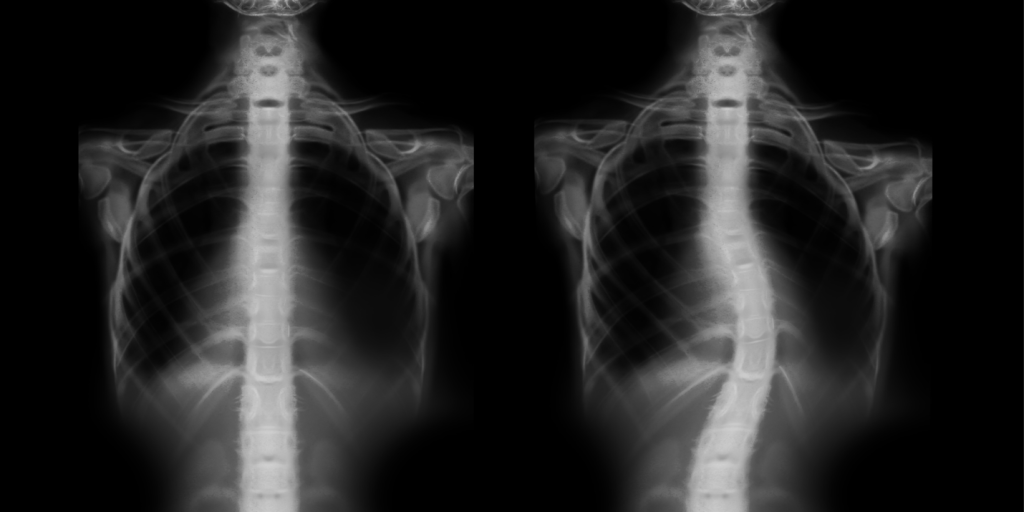
Scoliosis is a condition characterized by an abnormal curvature of the spine, affecting numerous individuals globally. A common belief is that carrying heavy backpacks or shoulder bags can lead to scoliosis. This common belief has been causing worry among students, workers, and people who often carry heavy bags or heavy items.
Social Media Claim
Recently, a user on X platform shared a message stating that “Warning to girls who like to carry heavy bags, using shoulder bags can risk causing Scoliosis. The doctor recently told me during a health check that my spine is starting to curve. This is common in women, especially those who carry laptops, iPads, and lots of things. It would be better to switch to using a backpack.”

The post has been shared over thirty thousand times and viewed more than seven million times.
What is Scoliosis?
Scoliosis is a condition in which the spine curves to one side. While a normal spine has a natural curve and appears straight when viewed from the back, a spine with scoliosis curves in an S or C shape. This curve can occur on either side and at various points along the spine. The exact cause of scoliosis remains unknown. (Source: National Institute of Arthritis and Musculoskeletal and Skin Diseases: NIAMS)
Health care providers are unsure of what causes the most common type of scoliosis. However, it seems to involve hereditary factors, as the disorder often occurs within families. Less common types of scoliosis can be caused by:
- Certain neuromuscular conditions, like cerebral palsy or muscular dystrophy.
- Birth defects that affect the development of the spine’s bones.
- Previous chest wall surgery performed in infancy.
- Injuries to or infections of the spine.
- Irregularities in the spinal cord.
(Source: Mayo Clinic)
Scientific Evidence and Experts Opinion
Research on the topic “Research Progress on the Etiology and Pathogenesis of Adolescent Idiopathic Scoliosis” from the Department of Orthopedics, Peking Union Medical College Hospital, Beijing, concludes that the current etiology of Adolescent Idiopathic Scoliosis (AIS) is still unclear. The current aspects about this disease can be divided into nine area, including stem cells in bone marrow, genetic research, analyzing tissues, measuring spine mechanics, studying the nervous system, hormone studies, biochemical analysis, looking at environmental factors, and exploring lifestyle. These aspects can help guide further research into the causes and treatments of the disease.
The article “Heavy Backpacks and Children” by the Southwest Scoliosis and Spine Institute discusses the relationship between scoliosis and the weight of backpacks. It asserts that carrying heavy items, regardless of their weight, does not cause scoliosis. However, carrying heavy items can lead to other types of back problems. These issues commonly arise when a backpack is excessively heavy, the straps are too loose, or when a child leans forward while carrying an overly heavy backpack, resulting in spinal misalignment.
Furthermore, Dr. Tony Setiobudi, an Orthopaedics and Spine Surgeon, has debunked myths about Scoliosis. He clarified that Scoliosis is not a preventable condition, and carrying heavy bags is not its cause. Watch the full video below.
Source: Med Talk Singapore
Summary
Scoliosis, a spinal deformity characterized by a sideways curve of the spine, is not primarily caused by carrying heavy bags or backpacks. The exact cause of scoliosis is still uncertain, but it often originates from genetic factors or other body abnormalities. While carrying heavy items can lead to poor posture and muscle imbalances, it is not typically a direct cause of structural scoliosis. However, It could potentially worsen the condition and contribute to other injuries, such as back pain, neck pain, and headaches.

Title: Unveiling the Truth: Does Carrying Heavy Items and Bags Cause Scoliosis?
Fact Check By: Cielito WangResult: Insight




